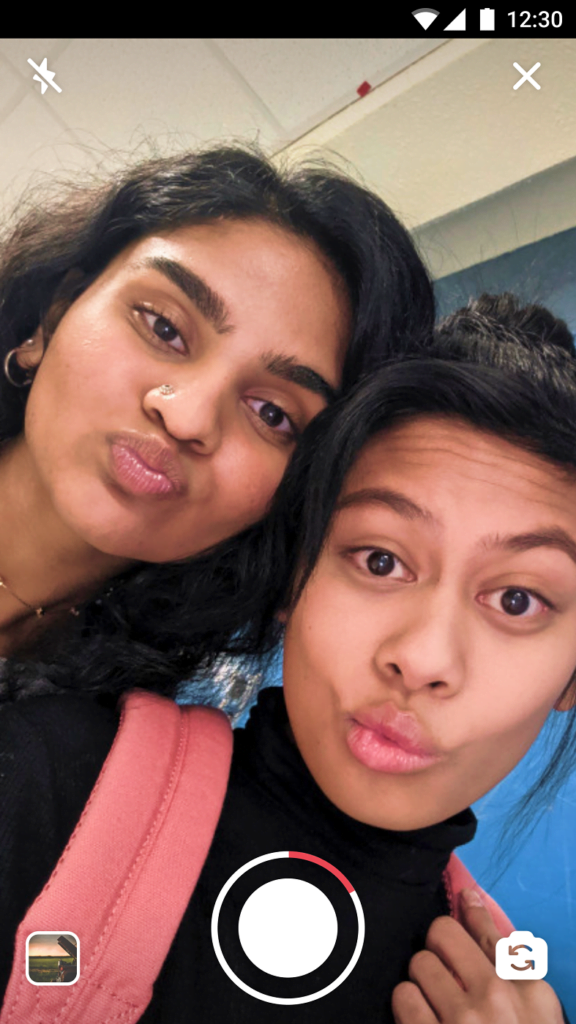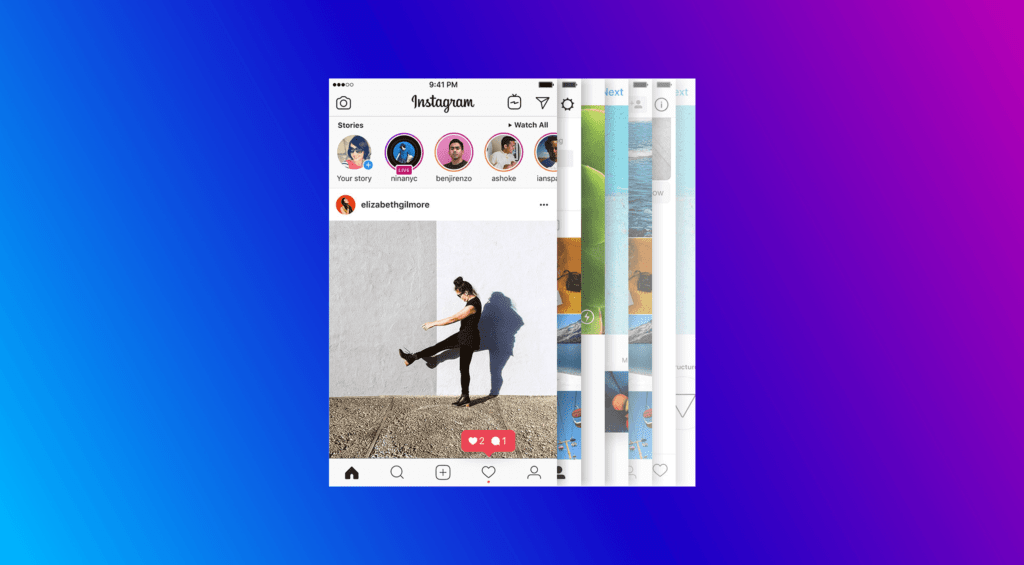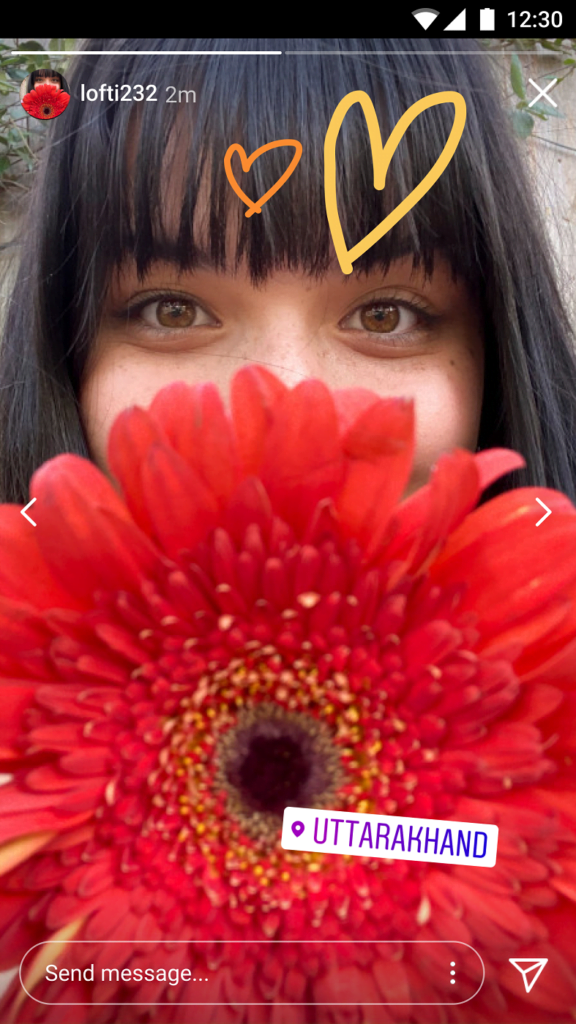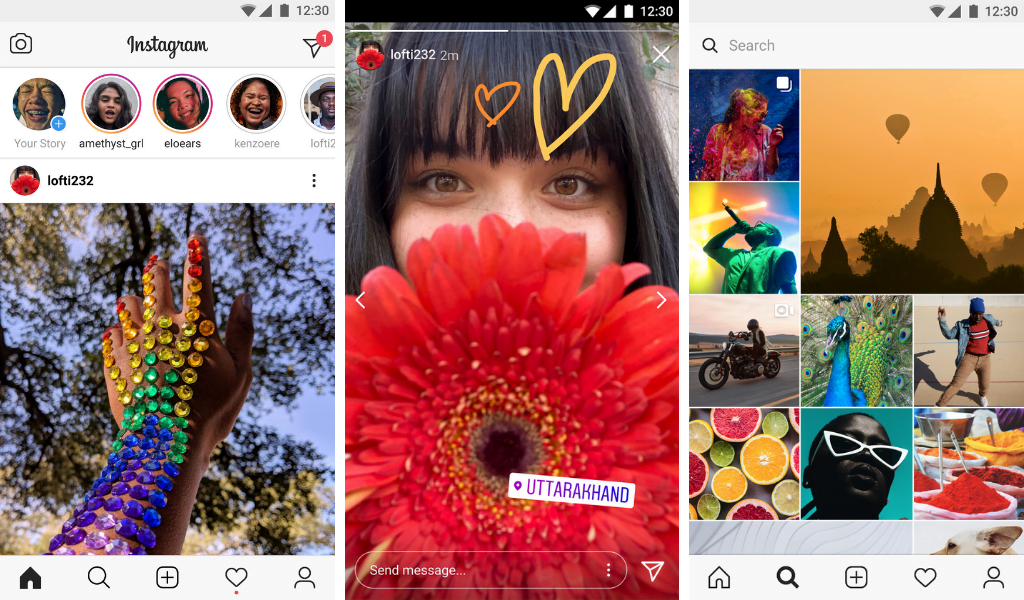Five years after Facebook launched a Facebook Lite app with emerging markets in mind – a lighter, faster product designed for low-speed internet connections and lower-end smartphones – the social media giant is launching Instagram Lite, a lightweight, stripped-down version of Instagram.
Like Facebook Lite, Instagram Lite was developed by a team of engineers, designers, and product managers among hundreds of employees at Facebook’s R&D hub in Tel Aviv, the largest such center outside the US.
The Instagram Lite product team says the app has been in the works since the beginning of 2020, even as teams had to work remotely due to the global COVID-19 pandemic. Testing began in September with Android users in Southeast Asia and is set to be piloted in north Africa and South America before a general rollout.
SEE ALSO: Fortune Names 4 Israelis To Expanded ’40 Under 40′ List

Instagram Lite weighs less than 2MB, allowing for quick installation and load time, and low storage consumption. It will offer the core features of the app for Android including the feed, stories, filters, direct messaging, and some IGTV capabilities. Instagram Lite will allow for the Instagram experience to remain fast and reliable irrespective of the device, platform, and network, the company says.
The target audience for Instagram Lite is the same as for Facebook Lite: hundreds of millions of mobile users in emerging markets across Asia, Africa, the Mideast, and South America with low spec phones and internet connectivity that does not go above 2G/3G.
According to the team’s research, over 50 percent of mobile users in sub-Saharan Africa are on 2G networks, as are 45 percent in India and 34 percent in the Mideast.
The product team indicated in a virtual press briefing on Tuesday that Facebook Lite now has hundreds of millions of users across the world, including in Israel.
Though declining to divulge number so far, the team says Instagram Lite is experiencing positive organic growth.
“Instagram Lite builds on the work we did for Facebook Lite in Tel Aviv. We took many of the lessons learned and technologies developed while we were creating Facebook Lite and applied them to Instagram Lite, together with our basic premise to leave no one behind, said Tzach Hadar, Facebook’s Tel Aviv tech site lead, and director of product management for Lite interfaces, in a Facebook statement. “Leave no one behind” has been a stated Facebook goal to help connect more people to the internet by providing access and adapted products.
“With Instagram Lite people around the world will enjoy a high-quality Instagram experience, no matter what device or network they are using,” Hadar added.

Michelle Lourie, product manager of Instagram Lite says the new app will offer Instagram to millions who are not able to use it today due to slow connections, limited and expensive data packages, and low storage capabilities on low-spec devices. Just as Facebook Lite became the only Facebook experience for millions.
“Most people in the places we’re testing know and love Facebook Lite so when we began rolling out Instagram Lite, we saw a lot of positive comments from people who were really happy that this new app was available,” she said in the statement.
Lourie explains the Lite app also answers some users’ specific needs in emerging markets: Some have no email addresses, or passwords of any sort, and may even be sharing phone devices with family or friends. Others may want to restrict message requests from strangers or block undesirable content from appearing unless they search for it.
The Tel Aviv team has had to take into account these and other considerations when building the app.
Sign up for our free weekly newsletter
Subscribe
One popular request so far has been a “dark mode” for the app, she says, for people who live with others in the same area and don’t want to disturb them at night. Dark mode is also said to save on battery. The feature became available on Facebook Lite this year.
On a technical level, the Israeli developers had to adapt certain features to build a lightweight Instagram that still adheres to the “quality and the craft” of the product.
With Instagram Lite, says Gal Zellermayer, software engineering manager of Instagram Lite, much of the code actually runs on Facebook’s servers rather than the users’ devices to save on space and processing.
Instagram’s cube animation transition between Stories had to go as it was too heavy and Stories in the bar appear in pulses rather than all at once. The scrolling function and picture size also had to be reduced and adapted.
Everything is just lighter and faster, says Lourie.
Instagram Lite will only be available on Android for now since it is the operating system of choice in many emerging market countries and supports low-Ram devices. There are no immediate plans for a rollout on iOS, Apple’s mobile operating system, the team says.
Apple phone devices usually demand a higher budget. Facebook Lite became available on iOS starting in 2017 but the company has stopped making it available this year due to low adoption.
Facebook’s ‘leave no one behind’ internet access goal
Hadar, Facebook’s tech site lead in Tel Aviv, says the Israeli hub has a few internet connectivity related projects in the works as part of Facebook’s long-term goal of connecting more people to the internet – its “leave no one behind” premise.
“We’re working on a number of end-to-end products that are very focused on emerging markets, including the Lite [products] and connectivity [efforts] like Express Wi-Fi,” Hadar says in reference to an ambitious project to build internet hotspots in remote areas to offer fast, stable internet connections. Facebook does this by partnering with internet service providers, mobile operators, and local entrepreneurs.
The company estimates that over 3 billion people worldwide live in areas with 3G+ networks but remain unconnected due to their poor performance, instability, and expenses.
Express Wi-Fi is already live in cities and villages in Ghana, Kenya, South Africa, Tanzania, and Senegal in Africa, as well as in certain areas in India, Nepal, Indonesia, and the Philippines in Asia, and Brazil and Argentina in South America.
Facebook’s Israel team is also working on Facebook Shops to help businesses sell their products and services online (especially as the pandemic has forced entrepreneurs and business owners to adopt a virtual mindset), and Novi, a digital wallet for the company’s blockchain-based payment system Libra.
Hadar says the issue of money transferring is notoriously difficult, especially across countries and particularly in emerging markets, and Novi aims to make sending money as easy and as simple as possible.
Related posts

Editors’ & Readers’ Choice: 10 Favorite NoCamels Articles

Forward Facing: What Does The Future Hold For Israeli High-Tech?

Impact Innovation: Israeli Startups That Could Shape Our Future




Facebook comments